DAY 1, 24 August 2021
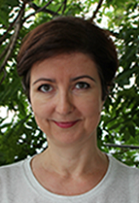
ZUZANA VATRÁĽOVÁ
Head of Office, International Organization for Migration (IOM) in the Slovak Republic & EMN National Contact Point for the Slovak Republic
Zuzana VATRÁĽOVÁ has served as the Head of the IOM Office in the Slovak Republic since 2004. In 2003, she worked at IOM as a coordinator of the information campaign on Preventing Human Trafficking in Slovakia. From 1997 to 2002, she worked as a journalist for BBC Bratislava and London. Prior to that, she had been a project manager at the National Agency for Development of Small and Medium Enterprises (NADSME) and she had also worked at the Ministry of Foreign Affairs of the Slovak Republic. She graduated in Journalism from the Faculty of Arts at Comenius University in Slovakia, and accomplished postgraduate studies at the Karol Rybárik Institute of International Relations of the Law Faculty at the Comenius University.
Moderator of the seminar
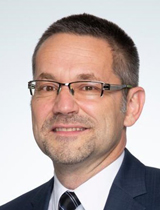
Ján Orlovský
Director of Migration Office of the Slovak Ministry of Interior & EMN Steering Board member for the Slovak Republic
Ján ORLOVSKÝ is Director of the Migration Office of the Slovak Ministry of Interior as of January 2021 which is responsible for the agenda of international protection and for fulfilling of the Slovak migration policy. He also acts as the European Migration Network (EMN) Steering Board member for the Slovak Republic. From 2015 to 2021, Jan was the Executive Director of the Open Society Foundation (OSF). Prior to that (2003 – 2014) he held position of a Spokesman and Head of the Office of the Board of Directors of the company Západoslovenská energetika a.s. In 1992 – 2002, Jan was working as a diplomat for the Slovak foreign service, for seven years as the 3rd Secretary and Advisor at the Slovak Embassy in Washington, DC. He cooperated with the US Congress as well as with non-profit and research organizations.
Moderator of the seminar
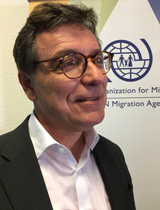
FRANK LACZKO
Director, IOM's Global Migration Data Analysis Centre (GMDAC), Germany
Frank LACZKO has over 20 years of experience working in the field of international migration. His previous posts with IOM were in Budapest, Vienna and Geneva. He has also acted as a consultant for UNHCR, ILO and OECD. He is currently the Co-Chair of the UN Expert Group on Migration Statistics and Co-Editor of Migration Policy Practice. He has published reports on a wide range of migration issues including migration and development, labour migration, irregular migration, migration and the environment and migration governance.
Topic presented: Through the lens of data: How has migration changed during pandemic?
Based on the information gathered at IOM’s Global Migration Data Portal, the lecture identifies key trends in global migration during the COVID-19 pandemic and explains the impact of pandemic on mobility and migrants around the world. Special focus of the lecture is on irregular maritime migration to Europe (missing migrants in the Mediterranean Sea and the Atlantic Ocean), migrant worker’s role in critical sectors such as healthcare, services, sales, agriculture, forestry and fishery, as well as remittance flows. The lecture discusses also infection and death rates among migrants and their access to COVID-19 vaccines, and provides insights into increasing anti-migrant sentiments across Europe.
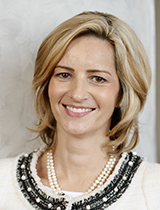
Miroslava Vozáryová
Director of Legal Department, Ministry of Foreign and European Affairs of the Slovak Republic
Miroslava VOZÁRYOVÁ is the Director of the Legal Department of the Ministry of Foreign and European Affairs of the Slovak Republic. Since 2013 she is responsible for the drafting of legislation and for legal services. She lectured at the Faculty of Law, Department of International Law and European Law of the Comenius University in Bratislava. In 2005 she worked at the Bureau of International Police Cooperation and between 2005 and 2012 at the Section of Legislation and International Affairs of the Ministry of Interior of the Slovak Republic where she became a General Director in 2011. During the years 1995 and 2004 she held a post at the Ministry of Transport, Posts and Telecommunications of the Slovak Republic. She studied law at Pavol Jozef Safarik University in Kosice and Comenius University in Bratislava.
Topic presented: Why multilateralism and the United Nations matter?
The lecture focuses on the role of multilateralism and the United Nations Organization in the context of migration based on historical facts of the 20th century, but also (international) legal framework and practical experience from Slovakia. The lecture pays special attention to the UN Global Compacts on Migrants and Refugees.
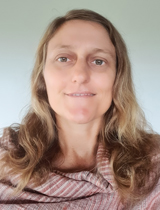
Margo Baars
Senior Programme Coordinator, International Organization for Migration (IOM) Afghanistan
Margo BAARS is currently Senior Programme Coordinator for the UN Migration Agency, IOM Afghanistan. Over the last decade, she has been in humanitarian coordination and operations roles with the United Nations at both global and country levels, including large-scale responses to conflict and natural disaster induced displacement in South Sudan, Nigeria, Iraq, Nepal, and Bangladesh. Prior to this, she worked in human rights advocacy and education, including the right to asylum, in her country of birth, New Zealand. She did post-graduate study at Oxford University, including a focus on forced displacement.
Topic presented: Current migration situation in Afghanistan
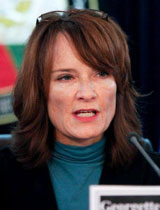
Georgette Gagnon
United Nations Assistant Secretary-General - Resident and Humanitarian Coordinator for Libya, United Nations Support Mission in Libya (UNSMIL)
Georgette GAGNON of Canada, whom the United Nations Secretary-General appointed as Assistant Secretary-General & Resident and Humanitarian Coordinator for Libya from January 2021, brings to the position over twenty-five years of experience leading and implementing strategic initiatives on human rights, humanitarian action and development and coordinating multi-disciplinary teams in conflict and post-conflict countries. Most recently, she served as Director of Field Operations and Technical Cooperation in the Office of the United Nations High Commissioner for Human Rights (OHCHR), where she led the substantive and operational work of the Office’s 94 field presences around the world.
From 2010 to 2015, Georgette was the Director of Human Rights for the United Nations Assistance Mission in Afghanistan (UNAMA) based in Kabul. She has also served as a director and senior adviser on protection of civilians, human rights and the rule of law in various duty stations with the United Nations, the Organization for Security and Cooperation in Europe (OSCE), national governments and non-governmental organizations.
Topic presented: UN support of countries in conflicts and the nexus to the Central European region: Case of Libya
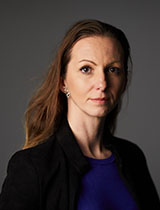
ELENA GALLOVÁ KRIGLEROVÁ
Director, Centre for Research of Ethnicity and Culture (CVEK), Slovakia
Elena GALLOVÁ KRIGLEROVÁ is a sociologist. In 2005 she co-founded the Centre for the Research of Ethnicity and Culture and since 2012 she has been director of this organisation. In her work she focuses mainly on integration of migrants and minorities, interethnic relations, social cohesion and trust. She has conducted several studies aimed at integration of foreigners in Slovakia. She also cooperates with local governments on designing integration policies. She is also a member of External Advisory Board for Minorities of the President of the Slovak Republic.
Chair of the panel discussion: How does Slovakia assist migrants and refugees? Slovak migration policies and assistance to vulnerable populations around the world
The panel discussion presents how Slovakia helps migrants and refugees in Slovakia and in other countries, introduces the Slovak migration policies and clarifies the role of international organizations in the area of migration.
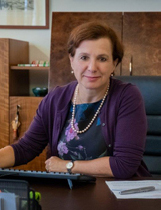
Ingrid Brocková
State Secretary, Ministry of Foreign and European Affairs of the Slovak Republic
Ingrid BROCKOVÁ is currently (since April 2020) the State Secretary of the Ministry of Foreign and European Affairs (MFEA SR) of the Slovak Republic. Prior to that she was the Ambassador and Permanent Representative of the Slovak Republic to the OECD (2011-2015, 2018-2020). Between that she was the Director General for Economic Cooperation at the MFEA SR), from 2001 to 2008 the Country Manager of the World Bank in Slovakia. She joined the MFEA SR in 1993, her expertise is mainly in economic diplomacy and development assistance agenda.
Discussion panelist: How does Slovakia assist migrants and refugees? Slovak migration policies and assistance to vulnerable populations around the world
SEE PANEL DISCUSSION ABOVE

Ján Orlovský
Director of Migration Office, Ministry of Interior of the Slovak Republic
CV - see above
Discussion panelist: How does Slovakia assist migrants and refugees? Slovak migration policies and assistance to vulnerable populations around the world
SEE PANEL DISCUSSION ABOVE

Zuzana Vatráľová
Head of International Organization for Migration (IOM) Slovakia
CV - see above
Discussion panelist: How does Slovakia assist migrants and refugees? Slovak migration policies and assistance to vulnerable populations around the world
SEE PANEL DISCUSSION ABOVE
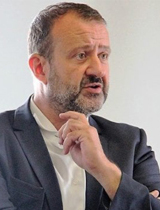
Gianluca Rocco
Chief of Mission, International Organization for Migration (IOM) Greece
Gianluca ROCCO has been serving as the Chief of International Organization for Migration (IOM) Greece Mission since November 2017 and since 2016 as Regional Response Coordinator in IOM Greece. He joined IOM at the end of 1999, with whom he has served in Serbia, Belgium, Jordan Montenegro, Bosnia and Herzegovina and Greece working as Programme Manager, Head of Implementation of Management Services, Senior Regional Return Policy Officer, Chief of Mission and Regional Coordinator for the Western Balkans.
During his professional career, Gianluca has worked on assisting different government institutions with capacity-building and technical cooperation activities as well as on issues related to border management, refugees, asylum seekers, assisted voluntary return, counter-trafficking, de-radicalization and migrants’ rights. Since 2006 he has also worked on Security Sector Reform, contributing to the development of Organization’s cooperation with NATO. Gianluca has 18 years of experience in the South East Europe region.
Topic presented: Life inside Greek refugee camps
The lecture provides first-hand information on migration situation in Greece which in recent years has proven to be one of the most difficult among European countries. It provides insights into living conditions of migrants and refugees in and outside of many Greek refugee camps and focuses on issues that unaccompanied children face in the country. The lecture explains in detail different types of assistance and services provided by international organisations and authorities on the ground and points out the importance of multilateral cooperation in migration management on the European soil. The lecture also highlights links between current displacement crisis in Afghanistan and potential impact on migration flows towards Greece.
DAY 2, 25 August 2021

Federico Soda
Chief of Mission, International Organization for Migration (IOM) Libya
Federico SODA is the Chief of Mission for IOM in Libya as of September 2019 and he is responsible for overseeing IOM’s activities in the country including humanitarian assistance and emergency response, technical cooperation, capacity building and community stabilization in order to enhance migration management systems in Libya.
Federico is also responsible for providing strategic direction to IOM’s response along the central Mediterranean route. From 2014 to 2019, Federico was the Director of the IOM Coordination Office for the Mediterranean in Rome, where he oversaw IOM activities in Italy, Malta and was also IOM’s Representative to the Holy See. Before assuming this position in 2014, he was the Head of the Labour Migration and Human Development Division at IOM Headquarters. From 2005 to June 2010, Federico worked on labour migration, migration and development, and policy at IOM’s Regional Office for Southeast Asia in Bangkok, Thailand. Federico worked with IOM in Bosnia and Herzegovina (2001-2005) and Myanmar (2008). Before joining IOM, he practiced labour and employment law with McCarthy Tétrault in Toronto, Canada.
Topic presented: Migration situation in Libya and the Mediterranean Sea – perspectives from the field
The lecture analyses current data on migrants and mixed migration routes in and out of Libya futher to the Mediterranean Sea, highlighting the need to look at migration statistics differently to get more accurate picture of migration trends towards Europe. It specifically describes the situation of internally displaced persons and returnees and outlines dozens of field activities that IOM as the UN Migration Agency carries out in Libya in the present.
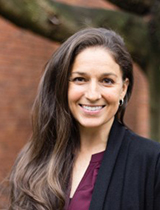
Melissa Siegel
Head of Migration Studies and Head of the Migration and Development Research Section at the Maastricht Graduate School of Governance and UNU-MERIT, The Netherlands
Melissa SIEGEL is a Professor of Migration Studies and Head of Migration Studies at Maastricht University and the United Nations University-MERIT. She is Co-Director of the Maastricht Center for Citizenship, Migration and Development (MACIMIDE), and is a Research Associate at the Center on Migration, Policy and Society (COMPAS) at the University of Oxford. She is also on the advisory board of the Migration Policy Center, EUI. She has done visiting research fellowships at Harvard University and the University of Oxford. She has advised, worked on or headed projects for several governments and international organisations and is regularly involved in migration-related trainings/capacity building for governments and international organizations while teaching at the Bachelor, Master and PhD level. Her main research interests lie in the causes and consequences of migration with a strong emphasis on the linkages between migration and development.
Topic presented: Myths and realities on migration and development
The lecture addresses the most prevalent myths and misconceptions around migration including those related to migration-development nexus. It discusses misconceptions around who is a migrant, around migration trends as well as around how migration and development interact. The lecture challenges the dominant views which are reflected also in the European policies that development as such or development aid in particular will reduce migration.
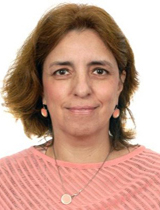
Sonia Plaza
Senior Economist, The World Bank & Global Knowledge Partnership on Migration and Development (KNOMAD), USA
Sonia PLAZA is a Senior Economist in the Finance, Competitiveness and Innovation Global Practice of the World Bank. She is also the co-chair of the Diaspora Thematic working group of KNOMAD (Global Knowledge Partnership on Migration and Development). Sonia was born in Lima, Peru. Her father had a constructing firm, so some of her earliest childhood memories are of traveling with him to poor areas including Ayacucho where he was working on projects. This is how she was first exposed to development work, and it shaped her. She wrote chapter 5 of the book, “Africa’s Silk Road: China and India’s New Economic Frontier”, which covers trade facilitation, technology, and skills transfer, and regional trade agreements. She advises many universities on the transfer of skills and tapping into their diasporas. In the past, she was working for the Peruvian Ministry of Trade as a manager responsible for counter trade and debt swap agreements. She was Professor of Economics (International Economics) at the Peruvian School of Foreign Service and at the University of Lima in Peru, and was adjunct faculty (Microeconomics and Macroeconomics) at The American University in Washington, DC. Her research interests include international migration, labour mobility, trade, and the future of labour. She joined the Institute for the Study of Labour as a Research Fellow in February 2010.
Topic presented: Migrant money as the hidden force in global economics
The lecture explores what happened to remittances in the global economy during the ongoing COVID-19 pandemic and highlights importance of diaspora skills and investments. It shows how the pandemic affected remittance flows in different world regions, reveals reasons behind resilience of remittances, and analyses their impact on macro and micro (household) level. The lecture summarizes top recipients of remittances globally in 2020, provides data on remittance inflows to Slovakia, and analyses outlook for remittances in 2021. It points out the issue of costs of sending remittances as well as policy responses aimed at supporting migrants, migrants’ families and remittance infrastructure.

Mauro Martini
Programme Officer at Financing Facility for Remittances, The International Fund for Agricultural Development (IFAD), Italy
Mauro MARTINI is the Remittances and Development Officer of the IFAD's Financing Facility for Remittances (FFR), a multi-donor fund aimed at promoting innovative remittance models and migrants’ investments for development. Mauro provides strategic, planning and programme support on the topics of remittances, migration and development to the FFR and IFAD divisions, and liaises with donors, promoting new partnerships and resource mobilization. Before joining the Fund in 2013, he served the European Commission as Programme Manager on migration and asylum, contributing to the annual action plans and policies, and the implementation of its portfolio of programmes and projects worldwide. He then joined the International Organization for Migration as Policy and Programme Analyst, and was also in charge of resource mobilization. Previously, Mauro was Policy Adviser of the Secretary-General at EMF.
Topic presented: Breaking the remittance cycle to support development and food security
The lecture focuses on the impact of remittances on the development and rural security, leveraging it by breaking the remittance cycle with savings mobilization, asset building, income opportunities and job creation. It explains the International Fund for Agricultural Development’s dual approach and activities especially in rural areas to maximize the development impact of migrants’ and diasporas contributions, including the multi-donor programme Financing Facility for Remittances. The lecture also outlines how remittances contribute to UN’s Sustainable Development Goals and which challenges migrants and remittance service providers have faced during the pandemic.
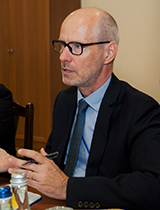
Lars Johan Lönnback
Chief of Mission, International Organization for Migration (IOM) Moldova
Lars Johan LONNBACK assumed the position of IOM Chief of Mission in Moldova in September 2018. Lars Johan has worked with IOM since 2010, where he started as Head of Division and Senior Migration Policy Advisor at Headquarters in Geneva. Lars Johan was most recently posted in Bangkok, Thailand where he was Program Manager within the Bali Process, and Senior Migration Policy Advisor on Migration and Development at the IOM Regional Office for Asia Pacific. Prior to working with IOM, Lars Johan worked for the Swedish Ministry for Foreign Affairs posted in Brussels at the Swedish Permanent Representation as Counselor, and at the European Commission as National Expert. Prior to his time in Brussels, Lars Johan was posted in Sarajevo at the Office of the High Representative for the Dayton Peace Accords as political officer. Lars Johan has also prior experience of working with UNHCR in Northern Iraq and the Russian Federation.
Topic presented: Migrating back to opportunity: return migration as a development tool
Based on the experiences of Moldova and other Eastern partnership countries, the lecture seeks to answer how to approach diaspora engagement, return and reintegration in policy and programmatic approaches to mobility in the European space in the next decade. It identifies the factors generating multi-directional migration in the region including demographic changes and deals with the intertwined dynamics between labour shortages in one country and talent loss in another country. The lecture then focuses on how to create effective policies to address these issues.

Raúl Delgado Wise
Professor of Developmental Studies, Autonomous University of Zacatecas, Mexico
Raúl DELGADO WISE is Professor of Development Studies at Universidad Autónoma de Zacatecas. He is also President and founder of the International Network on Migration and Development, co-Director of the Critical Development Studies Network, Editor of the journal Migración y Desarrollo, UNESCO Chair on Migration, Development and Human Rights. He is the author/editor of 31 books and more than 200 book chapters and refereed articles, and a guest lecturer in over forty countries.
Topic presented: International migration and development from the Global South perspective
The lecture presents migration and development from the perspective of a migrant and the Global South, rather than from a dominant perspective of Global North and receiving countries. It debates these two perspectives in terms of theory and politics, reconceptualizes forced migration and takes a closer look at the global governance on migration using practical examples from Mexico and the USA.
DAY 3, 26 August 2021
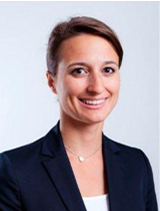
Stéphanie Winet
Head of Stakeholder Engagement, International Organisation of Employers (IOE), Switzerland
Stéphanie WINET joined the International Organization of Employers (IOE) in April 2016 and serves there as the Head of Stakeholder Engagement. The IOE is the largest network of the private sector in the world, with more than 150 business and employer organisation members. The IOE is the host and founding father of the Business Mechanism to the Global Forum on Migration and Development, which aims at ensuring the voice of business is brought on board in government migration debates in international fora.
Prior to her role at the IOE, Stéphanie Winet was Political Adviser at the Permanent Mission of Switzerland to the United Nations in New York. Stéphanie started her career in the private sector in Geneva. She worked for a number of companies, rising to the position of Deputy Public Relations Manager.
Topic presented: Migrants and employers: economics of migration and the role of private sector in migration cycle
The lecture shows migration from the perspective of the private sector and explains why businesses need a well-regulated migration. In particular, it provides views, interests, priorities, resposibilities and actions of global employers in migration as well as outlines three business priorities on migration: skills shortage, responsible recruitment, skills recognition and development. The lecture introduces the International Organisation of Employers (IOE) which has now more than 150 employer and business organisation members and represents the interests of more than 50 million companies.
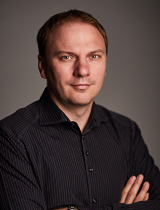
Martin Kahanec
Founder and Scientific Director, Central European Labour Studies Institute (CELSI), Slovakia & Professor and Head of the Department of Public Policy, Central European University, Austria
Martin KAHANEC is Founder and Scientific Director of Central European Labour Studies Institute (CELSI) based in Bratislava, and Professor and Head of the Department of Public Policy (2021- ) at the Central European University (CEU) in Vienna. He acted as the Dean of CEU's School of Public Policy in 2017-19 and 2020-21. When the School was renamed to Department as of the academic year 2021-22, he has been elected to continue as the Head of the Department of Public Policy. Martin is member of the Scientific Board of the Ministry of Labour and Social Affairs of the Czech Republic and a former member of the national COVID-19 Economic Crisis Management Council at the Ministry of Finance of the Slovak Republic and member of Minister's Advisory Council (2020-2021).
His main research interests are labor and population economics, migration, EU mobility, ethnicity, and reforms in European labor markets. Martin has published in peer-reviewed academic journals and has edited and contributed to several scientific book volumes and journal special issues. He has held several advisory positions and leading roles in a number of scientific and policy projects with the World Bank, the European Commission, European Parliament, European Court of Auditors, OECD, and other international and national institutions.
Topic presented: Labour migrants and migration policies in the EU: beliefs, evidence, and ways forward
Why to care about migration and mobility in the EU? What mobility do we have in the EU? What are the roles and effects of EU mobility? And what migration policy options do we have? The lecture shares an economist perspective on labour migration policies, compares different perceptions and narratives surrounding migration with evidence and is rethinking ways forward in future migration policies.
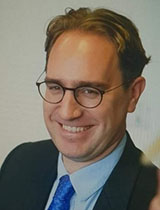
Michael Newson
Senior Labour Mobility and Human Development Specialist, IOM Regional Office for South-Eastern Europe, Eastern Europe and Central Asia, Austria
Michael NEWSON is the Senior Specialist for Labour Mobility and Human Development (LHD) for the South-Eastern Europe, Eastern Europe, and Central Asia Region with the International Organization for Migration (IOM). He is responsible for providing technical support, policy expertise, and capacity building to governments, IOM officials, and other relevant stakeholders throughout the region. Michael previously held the same position in the Middle East and North Africa Region working from the Regional Office in Cairo from 2012 to 2016. He has also worked with IOM in Bogota and Mauritius, where his work focused on the development and implementation of labour migration programmes. From 2009 to 2011, Michael worked as Senior Policy Advisor in the Labour Market and Immigration Division for the Government of British Columbia, Canada, where he focused on policy issues relating to both temporary foreign workers and permanent economic immigration streams.
Topic presented: Navigating Migration Policy in Demographic Transitions
The lecture deals with the interlinkages between demographic change and labour migration policies in the Eastern & South-Eastern Europe Region as well as in Slovakia. It specifies demographic projections for the region and who is and will be impacted the most. The lecture then focuses on countries’ reaction to the situation, outlines risks of overly restrictive and overly open migration policies, and summarizes country’s optimal policy response.
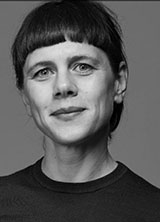
KARI ANNE KLOVHOLT DRANGSLAND
Human Geographer & Postdoctoral Fellow, Centre for Women’s and Gender Research (SKOK), University of Bergen, Norway
Dr. Kari Anne K. DRANGSLAND is a human geographer with over fifteen years research and teaching experience in migration, refugee, and planning studies. Currently she works as a researcher at the University of Bergen, Norway. As a researcher she has a long history with interdisciplinary work across fields such as architecture, art and urban planning and has been the co-producer of several exhibitions and projects thematizing pressing issues related to international migration.
Topic presented: How does the prolonged waiting affect migrants? Temporalities of (irregular) migration and the concept of waitinghood.
The lecture is devoted to the role of time in the governance of (irregular) migration and the effects of prolonged waiting on migrants. It is based on the findings and ethnographic fieldwork of the project WAIT – Waiting for an uncertain future: the temporalities of irregular migration (2017-2020) which approaches migration from the perspective of time and temporality rather than from traditional spatial realm.

Zuzana Vatráľová
Head of International Organization for Migration (IOM) Slovakia
CV - see above
Chair of the panel discussion: How to foster legal avenues for migrants and refugees to the EU?
The panel discussion examines existing legal pathways for migrants and refugees towards the EU, presents the so called tripple-win approach to migration in the form of sustainable recruitment of nurses from countries outside the EU for German labour market, introduces idea of unlocking skilled migration pathways for refugees and forcibly displaced persons and discusses lessons from and recommendations for legal migration pilot projects.
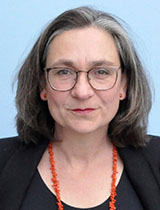
Tesseltje de Lange
Professor of European Migration Law & Director of the Centre for Migration Law, Radboud University, The Netherlands
Tesseltje DE LANGE is Professor of European Migration Law and Director of the Centre for Migration Law, both at Radboud University Nijmegen, the Netherlands. De Lange is an international expert on migration, with a research focus on economic migration and migrants’ socio-economic rights. She has published widely on these issues, see for example A new narrative for European migration policy: Sustainability and the Blue Card recast, European Law Journal 28 April 2021 and The EU’s legal migration acquis: Patching up the patchwork, 16 March 2021 (with Kees Groenendijk). Her latest book (upcoming Fall 2021) is on interdisciplinary collection on Money Matters in Migration: Policy, Participation, and Citizenship edited with Willem Maas and Annette Schrauwen, published at Cambridge University Press. From 2012 until December 2020, she was a member and vice-chair of the Dutch Migration Advisory Council and still regularly advises Dutch and EU authorities, and private actors, on European migration policies and their implications in practice. Prior to her academic career, she worked as an immigration lawyer and honorary district judge in migration cases.
Discussion panelist: How to foster legal avenues for migrants and refugees to the EU?
SEE PANEL DISCUSSION ABOVE
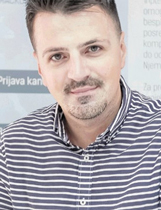
Foto: AVAZ
Emir Čomor
Project Coordinator, Tripple Win, Bosnia and Herzegovina,
Emir ČOMOR has been acting as a project coordinator of the Tripple Win in Bosnia and Herzegovina since 2018. The project focus is sustainable recruitment of nurses to Germany from countries outside of the EU like, for example, Bosnia and Herzegovina, Philippines, and Tunisia. In the past, Emir worked as a coordinator of Goethe – Institute Bosnia and Herzegowina based in Sarajevo.
Discussion panelist: How to foster legal avenues for migrants and refugees to the EU?
SEE PANEL DISCUSSION ABOVE
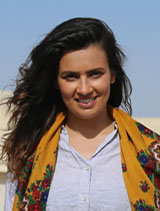
Marina Brizar
UK Director, Talent Beyond Boundaries, United Kingdom
Marina BRIZAR currently holds the position of UK Director at Talent Beyond Boundaries, rolling out Displaced Talent Mobility in the UK. She was born in Sarajevo, Bosnia & Herzogovina and moved to Australia as a refugee with her family. She is an Australian trained immigration lawyer and has been recognized by the Law Council of Australia with an award for Young Migration Lawyer of the Year; the Women Lawyer’s Associated with an award for Woman Lawyer of the Lawyer of the Year – Up and Coming; and the AFR who named her a ‘Women of Influence’. In 2018, Marina was featured in the SBS documentary ‘Go Back to Where You Came From’. She was partnered with Senator Jacqui Lambie and spent time in Syria. Marina completed a Churchill Fellowship where she recommended that governments develop and adopt Displaced Talent Mobility.
Discussion panelist: How to foster legal avenues for migrants and refugees to the EU?
SEE PANEL DISCUSSION ABOVE
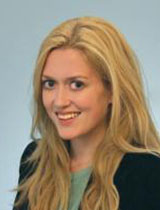
Kate Hooper
Policy Analyst, Migration Policy Institute (MPI), USA
Kate HOOPER is a Policy Analyst with MPI’s International Program, where she primarily works with the Transatlantic Council on Migration. Her research areas include labor migration, migration and development, and refugee and immigrant integration policies, with a focus on Europe and North America. She holds a master’s degree with honors from the University of Chicago’s Committee on International Relations, and a bachelor of the arts degree in history from the University of Oxford. She also holds a certificate in international political economy from the London School of Economics.
Discussion panelist: How to foster legal avenues for migrants and refugees to the EU?
SEE PANEL DISCUSSION ABOVE

